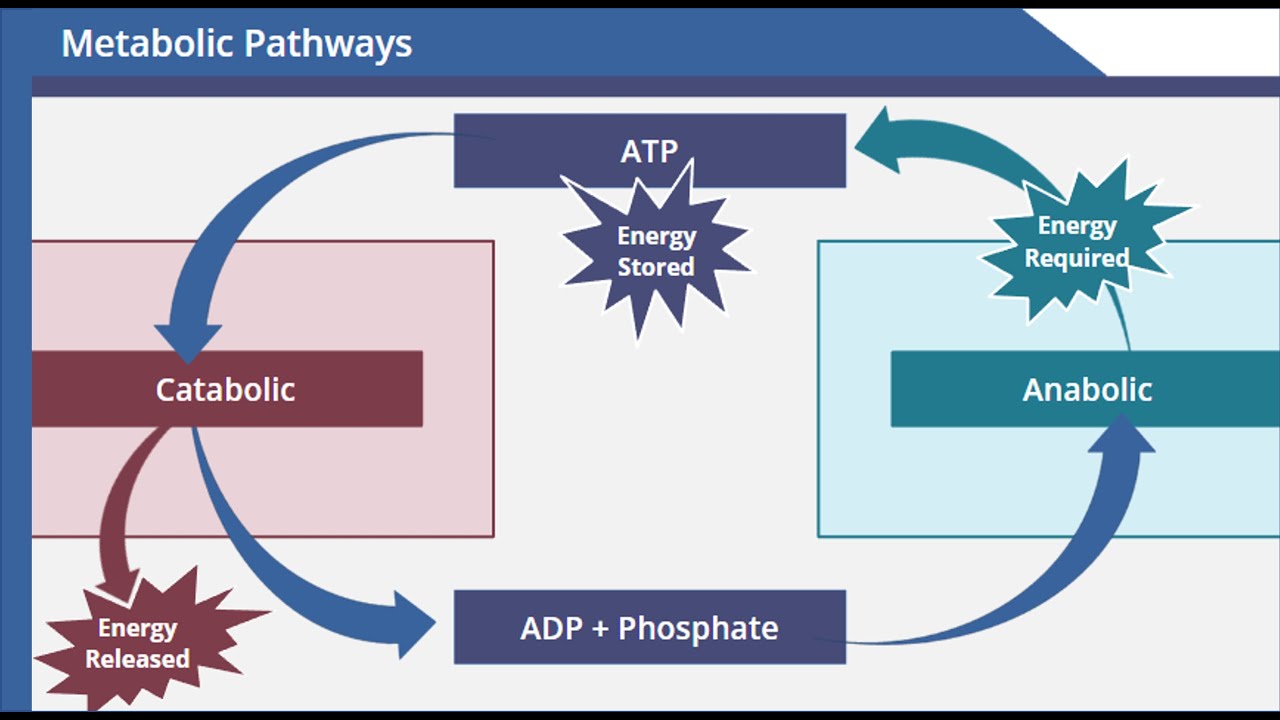
Metabolic pathways are the intricate networks that enable our cells to carry out essential biological processes, such as energy production, molecule synthesis, and waste elimination. These pathways involve a series of chemical reactions that are carefully orchestrated to maintain the balance and functioning of our bodies. While metabolic pathways may sound complex and daunting, they are at the core of life as we know it.
In this article, we will delve into the fascinating world of metabolic pathways and uncover nine intriguing facts that will shed light on their importance and intricacies. From the role of enzymes and coenzymes in catalyzing reactions to the significance of regulatory mechanisms in maintaining homeostasis, we will explore the remarkable intricacies of these biochemical pathways. So, let’s embark on this enlightening journey to discover the wonders of metabolic pathways!
Key Takeaways:
- Metabolic pathways are like the busy highways of our body, producing energy, breaking down molecules, and creating new ones for our cells to function. They are essential for life and highly regulated by enzymes.
- These pathways are like a giant puzzle, with pieces interconnected and influencing each other. They can be affected by genetics and the environment, and understanding them can help us fight diseases and create important chemicals.
Metabolic pathways are essential for sustaining life.
Metabolic pathways are the complex series of chemical reactions that occur within living organisms. They play a crucial role in producing energy, breaking down molecules, and synthesizing new molecules necessary for cellular functions.
Metabolic pathways are highly regulated.
Metabolic pathways are tightly controlled by enzymes, which act as catalysts to facilitate the chemical reactions. This regulation ensures that the right molecules are produced in the right quantities at the right time.
Metabolic pathways can be interconnected.
Metabolic pathways are interconnected networks, with the products of one pathway becoming the substrates for another. This allows the efficient utilization of resources and the coordination of various cellular processes.
Metabolic pathways can be anabolic or catabolic.
Anabolic pathways involve the synthesis of complex molecules from simpler ones, while catabolic pathways involve the breakdown of complex molecules into simpler ones. Both types of pathways are essential for maintaining cellular homeostasis.
Metabolic pathways are influenced by genetics and the environment.
Genetic factors, such as the presence or absence of certain enzymes, can influence the efficiency and regulation of metabolic pathways. Additionally, environmental factors, such as nutrient availability and temperature, can also impact the activity of these pathways.
Metabolic pathways are involved in diseases.
Dysfunction of metabolic pathways can lead to various diseases. For example, defects in glucose metabolism can result in diabetes, while abnormalities in lipid metabolism can contribute to cardiovascular disorders.
Metabolic pathways are used in biotechnology.
Metabolic pathways have been harnessed in biotechnology for the production of valuable compounds. By engineering microbial cells, scientists can utilize metabolic pathways to generate biofuels, pharmaceuticals, and other important chemicals.
Metabolic pathways are evolutionarily conserved.
Many metabolic pathways are remarkably similar across different organisms, from bacteria to humans. This conservation highlights the fundamental importance of these pathways in sustaining life and suggests their early origins in evolution.
Metabolic pathways are the focus of ongoing research.
Scientists continue to explore and unravel the complexities of metabolic pathways. Understanding the intricacies of these pathways can provide insights into diseases, develop new therapeutic approaches, and improve biotechnological applications.
Conclusion
Metabolic pathways are fascinating and complex networks that play a crucial role in the functioning of living organisms. Understanding the intricacies of these pathways is essential for researchers and scientists in various fields, including biochemistry, pharmacology, and medicine. From the production of energy to the synthesis of important molecules, metabolic pathways are involved in numerous vital processes.
Throughout this article, we have explored nine intriguing facts about metabolic pathways. We have learned about their diverse functions, their interconnected nature, and the significance of enzymes in controlling and regulating these pathways. We have also discovered how disruptions in metabolic pathways can lead to various diseases and how they can be targeted for therapeutic purposes.
Gaining a deeper understanding of metabolic pathways not only expands our knowledge of biology but also opens up new avenues for medical advancements and the development of innovative treatments. The study of metabolic pathways continues to be an exciting and evolving field, with much more to be discovered in the future.
FAQs
1. What are metabolic pathways?
Metabolic pathways are a series of interconnected chemical reactions that occur within living organisms, allowing them to convert nutrients into energy or synthesize essential molecules.
2. How do metabolic pathways work?
Metabolic pathways involve a series of enzymatic reactions, where each step is catalyzed by a specific enzyme. The products of one reaction become the substrates for the next, forming a continuous process.
3. How are metabolic pathways regulated?
Metabolic pathways are regulated through various mechanisms, including feedback inhibition, allosteric regulation, and hormonal control. These controls ensure that the pathways are balanced and respond to the organism’s needs.
4. What happens if a metabolic pathway is disrupted?
Disruptions in metabolic pathways can lead to various disorders and diseases. Examples include metabolic syndromes, metabolic bone diseases, and disorders of carbohydrate, lipid, or amino acid metabolism.
5. Can metabolic pathways be targeted for therapeutic purposes?
Yes, targeting specific metabolic pathways can be an effective approach in developing treatments for diseases. By inhibiting or activating certain enzymes or molecules within the pathway, it is possible to influence the metabolic processes and restore balance.
6. Are all metabolic pathways the same in all organisms?
No, metabolic pathways can vary between different organisms. While the basic principles of energy production and molecule synthesis are conserved, there are unique adaptations and variations depending on the organism’s specific needs and environment.
7. Is it possible to manipulate metabolic pathways for industrial purposes?
Yes, metabolic engineering techniques allow for the manipulation of metabolic pathways to produce valuable chemicals, biofuels, and pharmaceuticals. This application plays a significant role in industries such as agriculture, biotechnology, and pharmaceuticals.
8. Are metabolic pathways influenced by diet and lifestyle?
Yes, diet and lifestyle choices can affect metabolic pathways. Consuming specific nutrients or engaging in certain activities can influence the activity of enzymes and the overall functioning of metabolic pathways.
9. How are genetic disorders related to metabolic pathways?
Genetic disorders can impact metabolic pathways by causing enzyme deficiencies or impairing the function of specific molecules involved in the pathways. These disorders often result in the accumulation or deficiency of certain substances, leading to health problems.
Metabolic pathways are truly remarkable, but they're just the beginning of a captivating biochemical adventure. Glycolysis, a crucial metabolic pathway, holds many enigmatic facts waiting to be explored. Beta-oxidation, another essential process, might surprise you with its intricacies. Biochemistry techniques, often overlooked, play an extraordinary role in unraveling the complexities of life. Each topic offers a unique perspective on the incredible world of cellular metabolism, promising to expand your understanding and appreciation of the intricate processes that keep us alive.
Was this page helpful?
Our commitment to delivering trustworthy and engaging content is at the heart of what we do. Each fact on our site is contributed by real users like you, bringing a wealth of diverse insights and information. To ensure the highest standards of accuracy and reliability, our dedicated editors meticulously review each submission. This process guarantees that the facts we share are not only fascinating but also credible. Trust in our commitment to quality and authenticity as you explore and learn with us.


